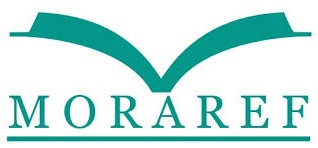- Focus and Scope
- Section Policies
- Peer Review Process
- Open Access Policy
- Archiving
- Section Policies
- Publication Ethics
- Publication Frequency
- Archiving
- Screening Plagiarism
- Article Fee Charges
Focus and Scope
The focus of TRILOGI: Jurnal Ilmu Teknologi, Kesehatan, dan Humaniora is a peer-reviewed journal, open-access journal is to provide readers the original articles on various issues within technology, health, and social humanities.
The scope of TRILOGI: Jurnal Ilmu Teknologi, Kesehatan, dan Humaniora is relating to but are not limited to new-renewable energy, food-agriculture, health-pharmacy, transportation, information-communication technology, advanced-materials, maritime-infrastructre, social-arts-education, and religious studies based on academic and scientific research. This journal seeks to publish a balanced mix of theoretical or empirical articles, case studies, review papers, comparative studies, exploratory papers, and book reviews.
Section Policies
Articles
Cover dan Daftar Isi
Peer Review Process
All manuscripts submitted to TRILOGI: Jurnal Ilmu Teknologi, Kesehatan, dan Humaniora must follow the focus, scope, and author guidelines of this journal. The submitted manuscripts must address scientific merit or novelty appropriate to the focus and scope. All manuscripts must be free from plagiarism contents. All authors are suggested to use plagiarism detection software to do the similarity checking. Editors check the plagiarism detection of articles in this journal by using a Plagiarism Checker software.
The research article submitted to this journal will be peer-reviewed at least 2 (two) or more expert reviewers. The articles will be sent to the peer reviewers to get Double-Blind Peer Review Process and will be returned to the authors to revise. The reviewers give scientific valuable comments improving the contents of the manuscript. All manuscripts are subject to peer review, and authors can expect a decision, or an explanation for the delay, within two months of receipt. The corresponding author should submit the revised manuscript within two weeks if a revision is invited. Principal Editors make the final decision based on the information gained through the peer-review process.
As explained in publication ethics, we ensure that the reviewed manuscript is treated confidentially before publication.
The final decision of articles acceptance will be made by Editors according to reviewers comments. Publication of accepted articles including the sequence of published articles will be made by Editor in Chief by considering the sequence of accepted date and geographical distribution of authors as well as the thematic issue.
Open Access Policy
This journal provides immediate open access to its content on the principle that making research freely available to the public supports a greater global exchange of knowledge.
Archiving
This journal utilizes the LOCKSS system to create a distributed archiving system among participating libraries and permits those libraries to create permanent archives of the journal for purposes of preservation and restoration. More...
Section Policies
ARTICLES
Publication Ethics
TRILOGI: Jurnal Ilmu Teknologi, Kesehatan, dan Humaniora is referring to Committee on Publication Ethics (COPE). Details of guideline and international standards could be found on COPE website.
Duties of Authors
- Reporting Standars: Authors of reports of original research should present an accurate account of the work performed as well as an objective discussion of its significance. Underlying data should be represented accurately in the paper. A paper should contain sufficient detail and references to permit others to replicate the work. Fraudulent or knowingly inaccurate statements constitute unethical behaviour and are unacceptable.
- Data Access and Retention: Authors are asked to provide the raw data in connection with a paper for editorial review, and should be prepared to provide public access to such data (consistent with the ALPSP-STM Statement on Data and Databases), if practicable, and should in any event be prepared to retain such data for a reasonable time after publication.
- Originality and Plagiaris: The authors should ensure that they have written entirely original works, and if the authors have used the work and/or words of others that this has been appropriately cited or quoted.
- Multiple, Redundant or Concurrent Publication: An author should not in general publish manuscripts describing essentially the same research in more than one journal or primary publication. Submitting the same manuscript to more than one journal concurrently constitutes unethical publishing behaviour and is unacceptable.
- Acknowledgement of Sources: Proper acknowledgment of the work of others must always be given. Authors should cite publications that have been influential in determining the nature of the reported work.
- Authorship of the Paper: Authorship should be limited to those who have made a significant contribution to the conception, design, execution, or interpretation of the reported study. All those who have made significant contributions should be listed as co-authors. Where there are others who have participated in certain substantive aspects of the research project, they should be acknowledged or listed as contributors. The corresponding author should ensure that all appropriate co-authors and no inappropriate co-authors are included on the paper, and that all co-authors have seen and approved the final version of the paper and have agreed to its submission for publication.
- Disclosure and Conflicts of Interest: All authors should disclose in their manuscript any financial or other substantive conflict of interest that might be construed to influence the results or interpretation of their manuscript. All sources of financial support for the project should be disclosed.
- Fundamental errors in published works: When an author discovers a significant error or inaccuracy in his/her own published work, it is the author’s obligation to promptly notify the journal editor or publisher and cooperate with the editor to retract or correct the paper.
- Hazards and Human or Animal Subjects: If the work involves chemicals, procedures or equipment that have any unusual hazards inherent in their use, the author must clearly identify these in the manuscript.
Duties of Editors/Section Editors
- Fair Play: An editor at any time evaluate manuscripts for their intellectual content without regard to race, gender, sexual orientation, religious belief, ethnic origin, citizenship, or political philosophy of the authors.
- Confidentiality: The editor and any editorial staff must not disclose any information about a submitted manuscript to anyone other than the corresponding author, reviewers, potential reviewers, other editorial advisers, and the publisher, as appropriate.
- Disclosure and Conflicts of Interest: Unpublished materials disclosed in a submitted manuscript must not be used in an editor's own research without the express written consent of the author.
- Publication Decisions: The editor board journal are responsible for deciding which of the articles submitted to the journal should be published. The validation of the work in question and its importance to researchers and readers must always drive such decisions. The editors may be guided by the policies of the journal's editorial board and constrained by such legal requirements as shall then be in force regarding libel, copyright infringement and plagiarism. The editors may confer with other editors or reviewers in making this decision.
- Review of Manuscripts: Editor must ensure that each manuscript is initially evaluated by the editor for originality. The editor should organize and use peer review fairly and wisely. Editors should explain their peer review processes in the information for authors and also indicate which parts of the journal are peer reviewed. Editor should use appropriate peer reviewers for papers that are considered for publication by selecting people with sufficient expertise and avoiding those with conflicts of interest.
Duties of Reviewers
- Contribution to Editorial Decisions:Peer review assists the editor in making editorial decisions and through the editorial communications with the author may also assist the author in improving the paper.
- Promptness: Any selected referee who feels unqualified to review the research reported in a manuscript or knows that its prompt review will be impossible should notify the editor and excuse himself from the review process
- Standards of Objectivity: Reviews should be conducted objectively. Personal criticism of the author is inappropriate. Referees should express their views clearly with supporting arguments.
- Confidentiality: Any manuscripts received for review must be treated as confidential documents. They must not be shown to or discussed with others except as authorized by the editor.
- Disclosure and Conflict of Interest: Privileged information or ideas obtained through peer review must be kept confidential and not used for personal advantage. Reviewers should not consider manuscripts in which they have conflicts of interest resulting from competitive, collaborative, or other relationships or connections with any of the authors, companies, or institutions connected to the papers.
- Acknowledgement of Sources: Reviewers should identify relevant published work that has not been cited by the authors. Any statement that an observation, derivation, or argument had been previously reported should be accompanied by the relevant citation. A reviewer should also call to the editor's attention any substantial similarity or overlap between the manuscript under consideration and any other published paper of which they have personal knowledge.
Publication Frequency
TRILOGI: Jurnal Ilmu Teknologi, Kesehatan, dan Humaniora is published four times a year (January-March, April-June, July-September, October-December).
Archiving
TRILOGI: Jurnal Ilmu Teknologi, Kesehatan, dan Humaniora utilizes the LOCKSS system to create a distributed archiving system among participating libraries and permits those libraries to create permanent archives of the journal for purposes of preservation and restoration.
This journal utilizes the Indonesia One Search (IOS), Indonesian Scientific Journal Database, Indonesian Publication Index (IPI) system to create a distributed archiving system among participating libraries and permits those libraries to create permanent archives of the journal for purposes of preservation and restoration.Screening Plagiarism
The manuscript that submitted into this journal will be screened for plagiarism using Turnitin or Plagiarism Checker X. Turnitin or Plagiarism Checker X provide tools to help originality checking to prevent plagiarism, checks writing for citation mistakes or inappropriate copying with personalized feedbacks.
Article Fee Charges
This journal charges the following author fees.
Article Submission: 0.00 (IDR)
Authors are not required to pay an Article Submission Fee as part of the submission process to contribute to review costs.
Article Processing Charge: 0.00 (IDR)
Authors are not required to pay Article Processing Charge as part of article processing to contribute to reviewing fees.
Article Publication Fee: 500.000 (IDR).
Allows people to access the full text versions of the articles..








.png)








